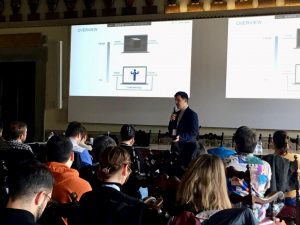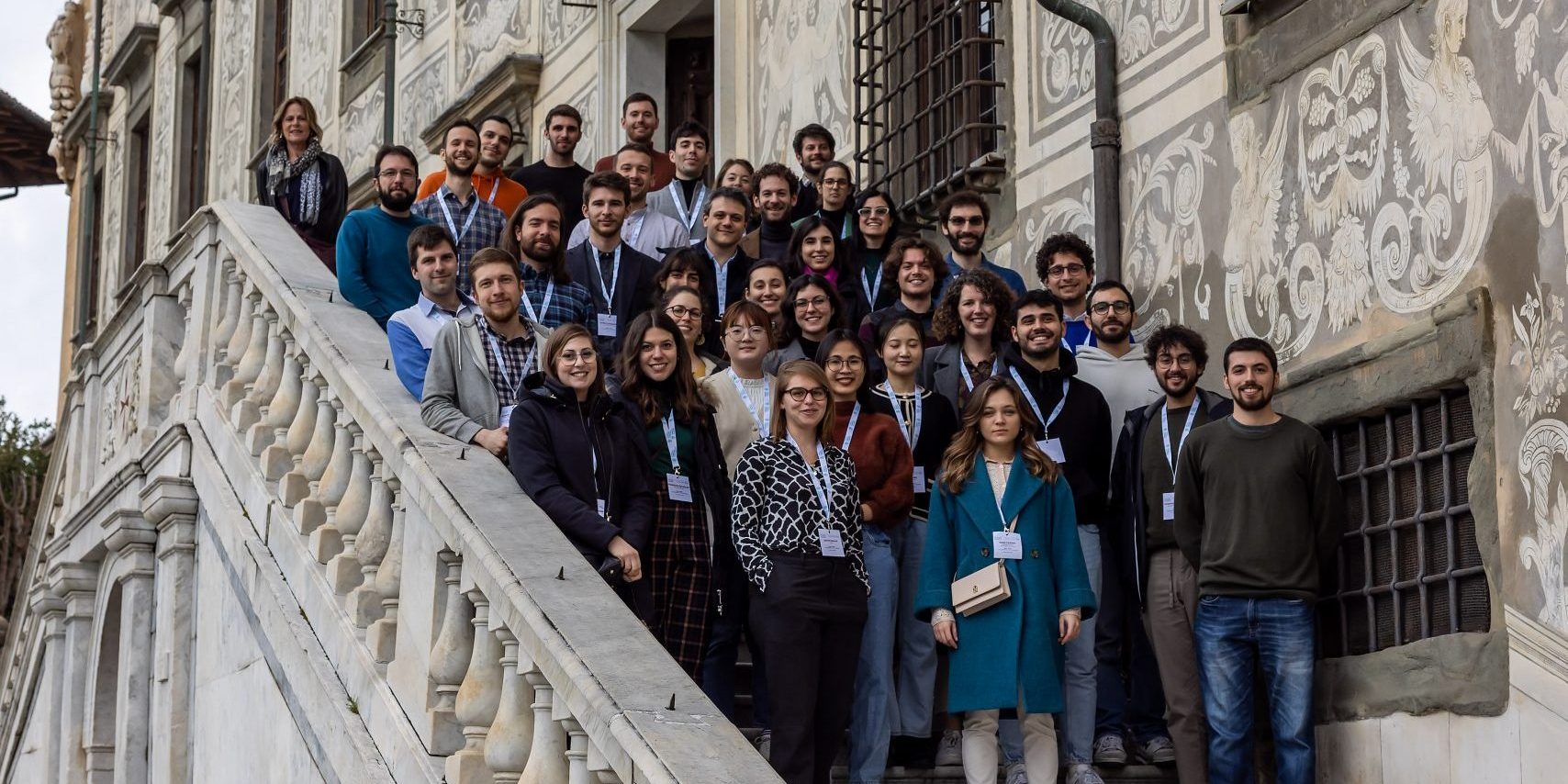Last week, the Seasonal School “Ethos+tekhne, a new generation of researchers”, took place in Pisa. This was a groundbreaking student-led activity organised by Scoula Normale Superiore, Scuola Superiore Sant’Anna and Université Paris Sciences et Lettres which was selected for funding by the first EELISA Joint Call.
During this one-week schoool, participants from different EELISA institutions came together to discuss key chapters of the Ethics Guidelines for Trustworthy AI. The event was ideated and managed by Stefano Vrizzi, Ph.D. on AI Sciences at PSL and Marie Curie PhD research fellow within the AI4theSciences programme; along with representatives from Scuola Normale Superiore, Paris Sciences et Lettres and Scuola Superiore Sant’Anna.
Konstantinos Parginos, Ph.D. at the Centre PERSEE of Mines ParisTech and Marie Curie Scholarship grantee as well, was part of the organizational team. We asked him to share with us his first-hand experience as an #EELISANarrator.
The Ethos and Tekhne Spring School took place in Pisa, Italy, from the 6th to the 10th of March, 2023. An event sponsored by EELISA with the goal of exploring the ethical aspects of AI and the technical ways to address them. The week-long event featured a series of workshops, talks, and discussions led by experts from different fields, such as AI Researchers, Philosophers, Economists, Big-Tech Leaders, Journalists, Lawyers, Members of the EU Parliament and Citizens, to address the most pressing issues related to AI ethics. We tried to express the need for a holistic view when attempting to solve such big challenges. Each day was dedicated to a specific theme, starting with the socio-economic impact of AI, followed by EU regulations for a fair and private AI, explainable AI (XAI), AI biases and trustworthiness, and finally, liability in AI.
During the first day, experts discussed the impact of AI on society and the economy, examining the potential benefits and risks and the ethical concerns associated with AI implementation. On the second day, the focus shifted towards EU regulations and standards that should be implemented to ensure a fair and private AI ecosystem. This discussion was particularly timely, given the ongoing debates on AI regulation at the EU level. The third day focused on the concept of explainable AI (XAI) and how it can help increase transparency and accountability in AI systems. The fourth day covered the issue of AI biases and trustworthiness, exploring how to address these challenges and prevent them from causing harm to individuals or groups. The event’s final day was dedicated to liability in AI, discussing the legal and ethical aspects of holding individuals and companies accountable for the consequences of AI systems they create or deploy. To wrap up the event, participants enjoyed a night at the cinema watching the movie “Her” by Spike Jonze, followed by a discussion about the film’s themes and how they relate to the ethical issues explored during the Spring School. This final session highlighted the importance of combining knowledge from different backgrounds to address complex ethical issues associated with AI.
Overall, the fact that participants expressed their will to follow up and actively contribute to Ethos and Tekhne Spring School next year indicates that it was a successful event. It’s a nice example of bottom-up initiatives organised by students for students with the support of EELISA funding that provided an opportunity to exchange ideas and perspectives on the most pressing issues related to AI ethics and fostered collaboration across disciplines to promote responsible AI development.
Konstantinos Parginos,
PhD Researcher
More about Konstantinos
He is working on enhancing the Interpretability of Artificial Intelligence tools in the Energy Sector and holds a M. Eng. in Electrical and Computer Engineering and finalising his M. Sc. degree in Management while receiving several professional certificates in Energy Transition. During his previous role at ENTSO-e in Brussels, Konstantinos coordinated the Pan European Market Modelling DataBase.

